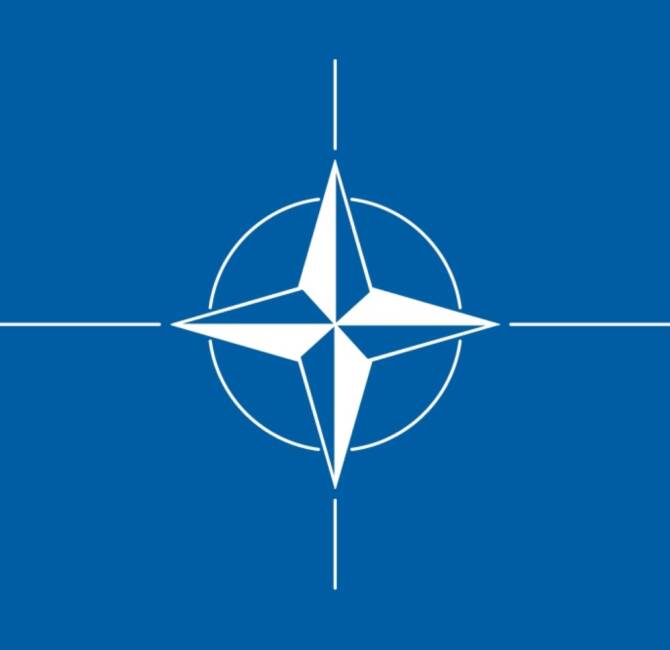This article was published online by the Magyar Nemzet on 23 February 2022.
In an interview conducted on Skype, a former director of Amnesty International Hungary, an important ally of George Soros, admitted that during her time as director, attempts were made to force the organisation into a political role, and she could not always resist these attempts. According to Orsolya Jeney, after her departure, all obstacles were removed from the path of those who sought to put pressure on the human rights organisation. The interview in question is part of the bulky folder of documents which our newspaper received a few weeks ago from an unknown e-mail address and which we continue to cover in a series of articles. Our writings published to date have clearly revealed how uninformed journalists manipulated by non-governmental organisations misrepresent the situation in Hungary.
In a Skype interview that came into our possession, Orsolya Jeney said as director of Amnesty International Hungary, she was under significant pressure from within the organisation to criticise the Orbán Government in the media in a quasi-opposition role, sometimes for no reason.
‘On one occasion, we were told from within that we should be much louder against Orbán,’ she said, adding that this request went beyond Amnesty’s boundaries. ‘I said, excuse me, who am I to override Amnesty’s mandate?’
In her words, it also happened that she was expected to respond to specific incidents involving politicians; however, in her view, a human rights organisation’s duty is to concern itself more with systemic phenomena.
Boycott
The former director recalled that before the referendum on migration, Amnesty, along with other organisations, encouraged electors to abstain from casting their votes.
They attempted to induce people not to attend the referendum. However, as Amnesty is a human rights organisation, ‘we respect people’s rights, free thinking, the right to be an integral person. We should not tell people what to do. Instead, we should raise awareness about the issue, and then they would come to the same conclusion,’ she said.
Regarding the situation within Amnesty, Orsolya Jeney recalled that on one occasion the organisation issued a communique in her name that she was not even allowed to read.
Clickbait headlines
She mentioned sensationalist anti-government statements as another example of the undesirable manipulation of public opinion.
‘With clickbait headlines it is easy to manipulate the segment of the reading public that hates the government, readers who are prepared to believe anything negative about Viktor Orbán, and who are mostly reluctant to read the articles themselves. This is a mistake that an organisation functioning beyond the realms of politics cannot make,’ the former director of the organisation underlined.
Orsolya Jeney pointed out that Hungary’s international perception becomes distorted in consequence of the fact that the actors of Hungary’s political life often make exaggerated statements, taking facts out of context. She highlighted that, for instance, the European Parliament, too, debates the affairs of Hungary on the basis of such reports.
She mentioned health care as one example of exaggerated criticism ‘which is indeed in very poor shape, but you can hardly say that it’s Viktor Orbán’s fault’.
Cast in opposition role
The former director stated that Amnesty International had recently become a more politicised organisation than before, and behaved much more as part of the opposition.
It is common knowledge that based on the bulky folder of documents sent to Magyar Nemzet’s editorial office a few weeks ago, including tens of hours of Skype interviews, the newspaper has revealed that dominant players of the Soros Empire themselves exposed their influence over the media, their manipulative methods, and the distorted and false image that is presented of Hungary and Poland in the international media.
Intellectual laziness
A former director of the Soros Foundations Andrej Nosko plainly admitted that Hungary and Poland, bundled into the same category, were often criticised for no reason. In his view, this is related to the fact that standards in the international press have fallen to an all-time low, to the phenomenon of intellectual laziness.
He said another problem is that many foreign journalists do not speak Hungarian, are compelled to rely on secondary sources, mostly on people who share the same political views as themselves, and this is why reports on the Hungarian government often misrepresent the situation.
The former director of the Soros Foundations further pointed out that the international Left and the press associated with them apply double standards to countries of the Central-Eastern European region, depending on the government that leads the given state.
In the case of countries led by the Left, they even turn a blind out to major violations of the law, while they attack right-wing governments even if their attacks have no basis.
Double standards
Slovak research associate of the American Enterprise Institute Dalibor Rohac, too, spoke about double standards in a Skype interview, mentioning Robert Fico as an example. The government led by the nominally social democrat Slovak prime minister was rather corrupt; yet, as he was seen as one of their own – as his party belong to the group of the European socialists – Fico was not compelled to face the same pushback from Brussels as Viktor Orbán, Rohac stated.
In his view, if Orbán were removed from power and the socialists came into government again in Hungary, there would be a massive sigh of relief in Brussels.
Márton Asbóth, a current project leader of the Hungarian Civil Liberties Union (TASZ) pointed out that while foreign press reports suggest that there are authoritarian regimes in power in Hungary and Poland, in his view, both countries are great places to live in.
Bought journalists
In another Skype interview, a former contributor of the news portals 24.hu and Index Mátyás Kálmán said various NGOs manipulate or even bribe journalists reporting about Hungary, and as a result, they often cover events in Hungary in a highly distorted light.
‘You don’t know whether a given journalist received an invitation to a fine hotel, or how much he or she was offered to write the story that they want to hear told in the media,’ Mr Kálmán said, describing methods of manipulation. He mentioned Amnesty International, an organisation funded by George Soros, as one of the NGOs that seek to control journalists.
While in a series of articles entitled SorosLeaks Magyar Nemzet exposed the manipulative practices of NGOs and the international press, similar articles were published in the foreign press as well.
Exposed in the Spanish press
A few weeks ago, the Spanish press exposed the European liberal political elite, making it clear why Brussels continually investigates and harasses Hungary and Poland, and why they are more lenient when it comes to the affairs of other Member States. On the website Periodista Digital, a lengthy article was published, summarising various private conversations and statements of a former Spanish Member of the European Parliament.
Punset said, among others, that the Western liberal elite apply double standards: they lack the courage to take action against Islam extremists because a large number of Muslims live in Brussels, and the problem of political correctness also arises.
By contrast, if Members of the European Parliament criticise Hungary or Poland, they will not incur anyone’s wrath. Either in a political sense, or in the form of demonstrations against them, the former Spanish MEP said.
Exerting pressure through Brussels
A few days ago, a French blog published another revealing document on the topic. In the writing subsequently removed from the website in a flash, the Chair-Chief Executive of WAN-IFRA, the World Association of News Publishers revealed how the press organisation he chairs took part in a smear campaign organised against Hungary. WAN-IFRA is partly funded by Soros’s Open Society Foundations.
The organisation derives its power from having direct access to the editorial boards of the world’s leading newspapers, and with this they are able to influence every aspect of their operations, from the management of media through advertising strategies to the wording of newspaper articles covering current affairs, as well as how to handle specific problems and what should constitute a problem at all.
According to the blog’s report, in a private conversation WAN-IFRA Chief Executive Vincent Peyrégne openly spoke about how exactly his organisation works, and made reference to the funding provided by the Soros Foundations for WAN-IFRA specifically with a view to agitating against the Orbán Government and exerting pressure. When Mr Peyrégne was asked whether it would be possible to exert pressure on Hungary via the European Union and the European Parliament, he said “But of course, it happened before.”




